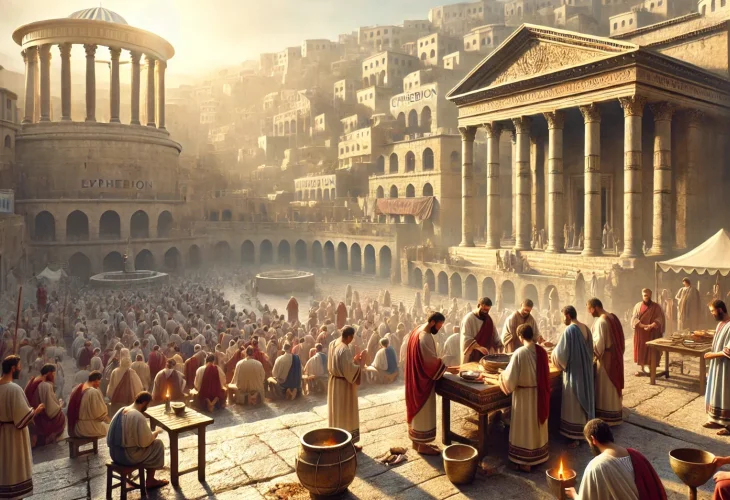The Cairo Scrolls: How Jews of Cairo Escaped Danger
In 1012, during a Jewish funeral in Cairo, chaos erupted as a mob attacked the mourners. Many were wrongfully arrested, leading the community to fast and pray until their release.

"In the days of our lord the king, who judges by the word of God, ruling the land of Egypt, and governing the corners of the world in the west, east, north, and by the sea, great and powerful was his kingdom...".
This is the opening of "The Cairo Scrolls," penned by the Israeli poet Rabbi Shmuel Ben Hoshana. Rabbi Shmuel was a leader of the Yeshiva of Eretz Hatzvi in Tiberias, and he often found himself among the Jewish community in Cairo.
Nearly a millennium ago, the Jews of Cairo faced challenges under the rule of the mad caliph Al-Hakim bi-Amr Allah, dubbed "he who judges by the word of God" in the scroll, who ruled the Mamluk empire. Al-Hakim became caliph at 11, and by 19, he began to oppress minorities in his kingdom starting in 1004. Christians were banned from celebrating their holidays, both Christians and Jews were forbidden from drinking wine, and Jews had to wear a wooden calf pendant as a reminder of the sin of the golden calf. Jewish women were required to wear two different shoes, one red and one black. Jews in bathhouses had to wear a bell tied to a string, and eventually, they were entirely barred from entering.
Later, Al-Hakim prohibited Jews and Christians from riding horses and destroyed Christian sites across the Land of Israel. In 1017, he declared himself a prophet and supported a sage named Muhammad ibn Ismail ad-Darazi, the figure from whom the Druze religion emerged, with Al-Hakim considered its founder.
Alongside the establishment of the Druze faith's tenets, his decrees became utterly erratic. He banned chess, ordered the killing of every dog in the city, demanded the reversal of night and day, insisting everyone sleep by day and work by night. It's no wonder he was nicknamed "the Mamluke Nero" (Nero was the Roman emperor known for his madness and setting Rome on fire).
In 1021, Al-Hakim went on an excursion in the Muqattam Hills near Cairo and vanished, to the relief of an empire on the brink of collapse due to his madness. However, according to the Druze faith, Al-Hakim didn't go anywhere; he awaits between heaven and earth to reveal himself as the "Mahdi" at the end of days, a revelation his followers still anticipate.
The Cairo Scrolls recount an event in 1012 when the madness was still developing. During a Jewish sage's funeral in Cairo, an Egyptian mob attacked the mourners, then falsely accused many of them. Meanwhile, the Jews of Cairo declared a fast and lamented. After much deliberation, the caliph agreed to free them after two days. The Cairo community set this as a perpetual fast on the 3rd of Sh'vat, and Rabbi Shmuel Ben Hoshana composed "The Cairo Scrolls" to describe their deliverance, bestowing lavish praise on Al-Hakim, who seemingly needed the flattery...
"He governed the whole kingdom with a generous heart and good mind, without need of vice-regents or advisors...
"He loved justice and hated wrongdoing, set judges in the land, and commanded them to judge fairly, ruling true judgments...
"And it came to pass on the third day of the month of Sh'vat in the year four thousand seven hundred and seventy-two from the creation of the world, that a cantor of the community named Putil was gathered, and Israel came to show him kindness and to bear his bier...
"The Egyptian rabble grew jealous, stoned them, and carved false and troubling accusations against them...
"The people were alarmed, fled for their lives, but were captured; they bribed to escape...
"They gathered twenty-three from among the people and placed them under guard in two prisons...
"The king commanded, leading them within the guardhouse of the royal palace, and shackled their feet...
"All Israel in Egypt was greatly distressed...
"They mourned, groaned, fasted, and wept...
"When their cries were heard before our lord the king, he knew of their pain and spirit's groaning and pitied them...".
The scroll is lengthy and fascinating but is not mentioned in historical texts. It reached us thanks to the Cairo Geniza.

